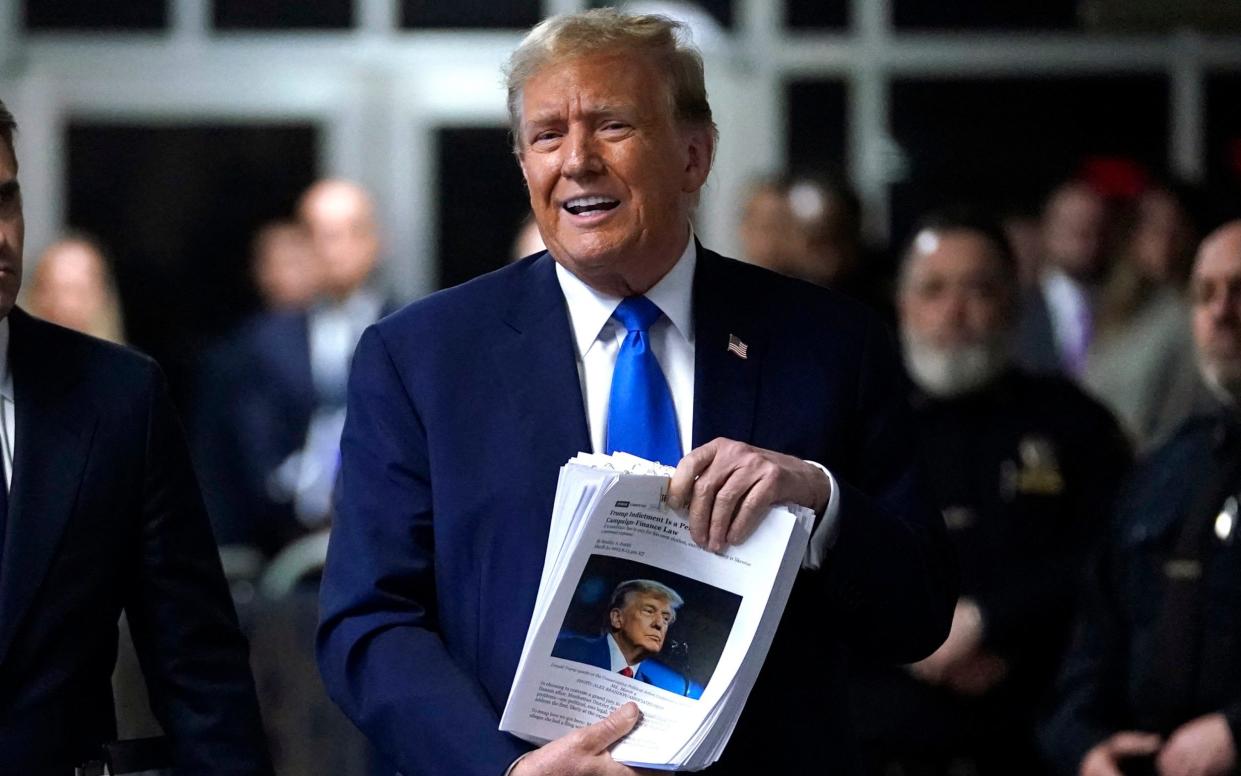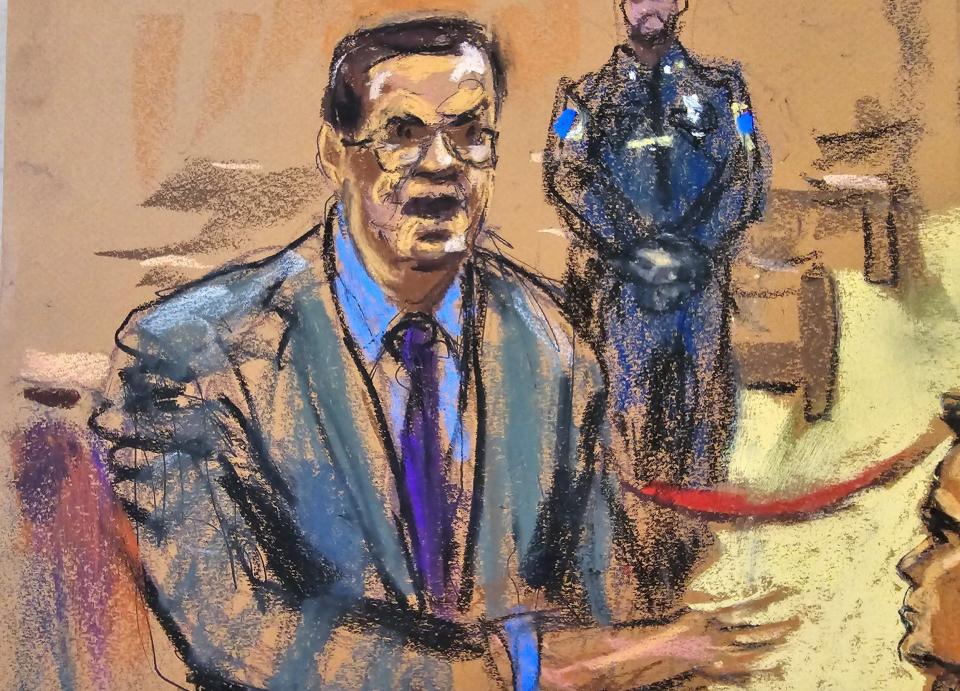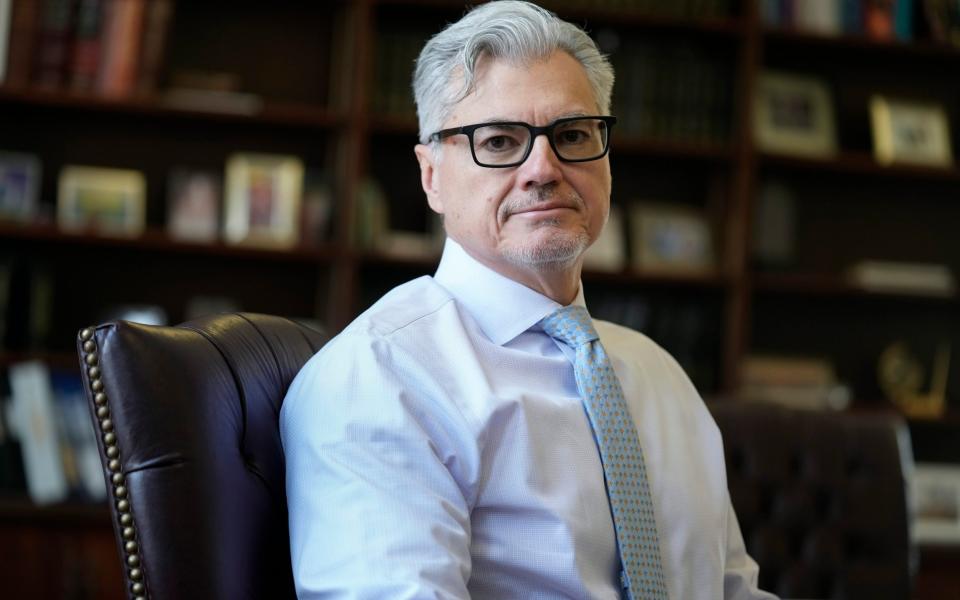Trump prosecution refuses to reveal witnesses over fear former president will attack them

Prosecutors have refused to reveal the first witnesses being called in Donald Trump’s hush money case over fears the former president will attack them on social media.
In an unusual move, Joshua Steinglass, the New York prosecutor, declined a request from Mr Trump’s legal team to share the identities of the first three witnesses – and his stance was supported by the judge.
“Mr Trump has been tweeting about the witnesses,” Mr Steinglass told the court “We’re not telling him who the witnesses are.”
“I can’t fault them for that,” replied Juan Merchan, the judge presiding over proceedings at the Lower Manhattan courthouse.
Jury selection for the trial was completed on Friday, clearing the way for prosecutors and defence attorneys to make opening statements next week in a case stemming from hush money paid to a porn star.
While proceedings were being wound down, a man lit himself on fire outside the New York courthouse.
The former president was seated inside Manhattan Criminal Court as the man’s body was reportedly engulfed in flames for at least three minutes. “I see a totally charred human being,” a CNN anchor said on air.
The man was rushed away from the scene in an ambulance.
Back in the courtroom, Todd Blanche, Mr Trump’s lawyer, offered to ask his client to avoid tweeting about witnesses but the judge appeared to cast doubt over whether he could control Mr Trump’s social media activity.
“I don’t think you can make that representation,” said Justice Merchan.

Mr Blanche pressed further, asking that the witness names be disclosed only to the legal team, but Justice Merchan also rejected this suggestion.
Prosecutors highlighted Mr Trump’s attacks on the prosecution’s star witness – his former lawyer and “fixer”, Michael Cohen – since the trial began.
They also accused the ex-president of violating a gag order imposed by the judge seven times this week, pointing out social media posts which branded Mr Cohen a “serial perjurer” and alleging that “undercover liberal activists” are attempting to get on the jury.
Prosecutors have already sought a $3,000 fine for three other posts on Mr Trump’s Truth Social platform. The judge said he will consider the matter next week.
Mr Trump’s legal team also suffered a setback when they were unable to dismiss a juror who labelled the former president “selfish and self-serving”.
The woman, who is from California but has lived in Upper Manhattan for 15 years, said: “I don’t like his persona. He just seems very selfish and self-serving so I don’t really appreciate that in any public servant.”
Mr Trump’s defence team argued for her dismissal but Justice Merchan refused and the lawyers could not force the issue as their quota of 10 juror challenges was used up.
A host of potential jurors have already been excused from the case including Herson Cabreras, an IT consultant, who was arrested in 1991 for tearing down political campaign slogans in a New York suburb.
Even though the majority of signs belonged to Republicans, prosecutors complained about his suitability and Justice Merchan agreed.
In an interview with USA Today, Mr Cabreras, who is in his late-70s, attacked the “cowardly judge” for allowing the prosecution’s argument to prevail.
“I didn’t expect they were going to go into my history of 30 years and pull out something I didn’t even remember,” he said, expecting the judge to dismiss the incident as insignificant.
“I looked at him, like, ‘Aren’t you going to say something?’ I’m sitting there, I’m the target and he’s supposed to be judging. And he just let it happen, he didn’t say anything.”
Mr Cabreras added that he thought “it was an excuse” for prosecutors to get him off the jury.
While Mr Cabreras was frozen out of the case, Mr Trump was struggling with the cold courtroom temperature after the judge refused to turn up the heating.
“I’m sitting here for days now, from morning till night in that freezing room,” Mr Trump told reporters. “Freezing. Everybody was freezing in there.”
Defence lawyer Todd Blanche had earlier asked court staff if the thermostat could be turned up “just one degree”.

However, Justice Merchan responded by suggesting a fault meant that a one-degree increase would lead to the room’s temperature rising 30F degrees.
“It is cold, there’s no question it is cold, but I’d rather be a little cold than sweaty, and really those are the choices,” said the judge.

 Yahoo News
Yahoo News 
